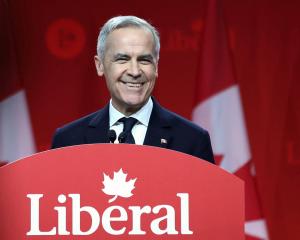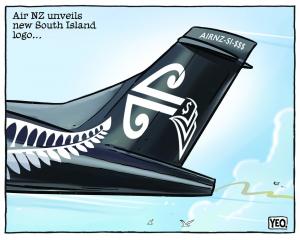News the ride-sharing company Uber will soon be patrolling Dunedin and Queenstown streets will come as a relief to many, particularly late night revellers who often experience a lengthy wait for transport after a night out.
For the less technologically minded, the service is based around a smartphone app which enables the user to find, hail and pay for rides from Uber registered drivers.
It is a concept which came to life in San Francisco in 2009, when its founders had difficulty hailing a taxi and decided to come up with an easier method. It began as a black car service but has morphed into an internationally recognised brand.
Uber was introduced to Auckland about four years ago and has slowly spread its way south. The company is worth an estimated $6.5billion, and operates in more than 630 cities, including five in New Zealand.
The expansion in New Zealand is bound to cause delight among regular public transport users in the South.
It can be notoriously difficult to quickly find taxis in Dunedin and Queenstown, particularly during Dunedin's big concerts or rugby test match weekends. Dunedin's current bus service is haphazard at best and cannot be relied on for late night transport home.
Queenstown has its own transport issues. It has become increasingly difficult to move around the town due to traffic congestion and local authorities have introduced a $2 bus service to try to ease those woes.
Earlier this month, Queenstown was labelled the ``Wild West of the taxi industry'' by New Zealand Taxi Federation chief John Hart. He believed some drivers were ripping off tourists and intoxicated locals. There were claims some new drivers were charging a minimum fare of $15.
Problems began with the arrival of new legislation in October which meant taxis did not need signs, meters were not necessary and it was easier for cabbies to obtain passenger and transport service licences.
Once Uber gains a foothold in Dunedin and Queenstown it will inevitably impact on local taxi companies who, for years, have held a monopoly on this form of transport. Uber prices are traditionally lower than taxi fares and that could lead to more competitive pricing.
It also has the potential to impact on other industries as the company indicated it would also establish Uber Eats, a food delivery service, in Dunedin.
Local taxi companies and transport agencies claim to be relaxed about Uber's arrival in the South but stressed the company must be prepared to play by the same strict rules taxi companies are expected to adhere to.
Importantly, in New Zealand all Uber drivers are required to hold a P endorsement on their full licence and be over the age of 21. Each driver needs to pass a background check, be insured, be able to be tracked by GPS, and hold accreditation.
According to the NZ Transport Agency, since the app was launched in New Zealand in 2014, it had been downloaded about 400,000 times and about 4000 drivers were registered.
It has not all been plain sailing for Uber. The company has copped flak throughout the world for not following local transport laws, which has raised questions about passenger safety.
Just last week, Uber was in the news again after an Uber self-drive vehicle hit and killed a pedestrian in Arizona. Uber had been testing self-drive vehicles in the United States and had more than 200 self-drive vehicles in its programme. Uber had suspended its testing in the wake of the accident.
However, it will not be long before those trials resume as self-drive vehicles are seen as the future, not just Uber.













